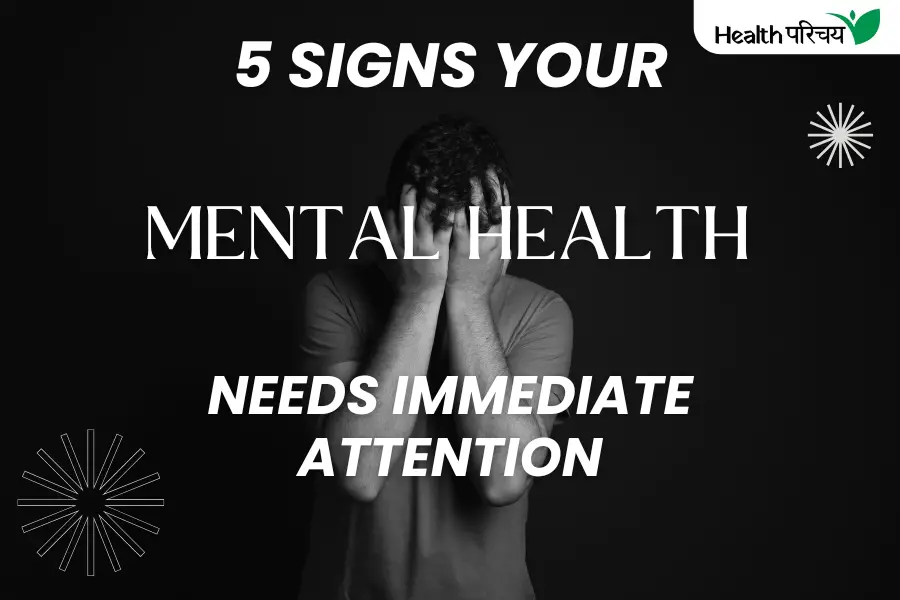Signs Of Mental Health Issues: Mental health is just as important as physical health, yet it’s often overlooked until something feels overwhelming. Recognizing the signs that your mental health needs immediate attention is the first step to taking charge of your well-being. Here are five key indicators to watch out for and actionable steps you can take to feel better.
Signs and Symptoms Of Mental Health Issues
1. Persistent Feelings of Sadness or Hopelessness
It’s normal to feel down occasionally, but if sadness or hopelessness persists for weeks or even months, it could indicate depression. You might lose interest in activities you once enjoyed or feel like there’s no point in anything.
What to Do:
- Talk to Someone: Reach out to a trusted friend or family member.
- Seek Professional Help: Consult a therapist or counselor who specializes in mental health.
- Try Journaling: Write down your thoughts to understand patterns and triggers.
2. Severe Anxiety or Excessive Worry
While some level of worry is natural, constant anxiety can interfere with your daily life. Physical symptoms like a racing heart, sweating, or difficulty breathing can accompany these feelings.
What to Do:
- Practice Mindfulness: Techniques like deep breathing or meditation can help calm your mind.
- Limit Stimulants: Reduce caffeine or sugar intake, as they can worsen anxiety.
- Consult a Specialist: A psychologist can provide cognitive behavioral therapy (CBT) or recommend other treatments.
3. Drastic Changes in Sleep Patterns
Struggling to fall asleep, staying asleep, or sleeping too much can signal a mental health issue. Sleep disturbances are commonly linked to stress, anxiety, and depression.
What to Do:
- Create a Sleep Routine: Go to bed and wake up at the same time daily.
- Avoid Screen Time: Limit exposure to screens an hour before bed.
- Seek Medical Advice: If the problem persists, consult a doctor for further evaluation.
4. Difficulty Concentrating or Making Decisions
If you find it hard to focus on tasks, remember details, or make decisions, it might indicate that your mental health is under strain. This symptom is often associated with stress, depression, or burnout.
What to Do:
- Break Tasks Into Smaller Steps: Focus on one thing at a time to avoid feeling overwhelmed.
- Take Regular Breaks: Short breaks during work can improve concentration.
- Seek Support: A mental health professional can help you manage these challenges.
5. Withdrawal from Social Activities or Relationships
If you’ve started avoiding friends, family, or social gatherings, it could be a sign of declining mental health. Isolation often feeds feelings of loneliness and sadness.
What to Do:
- Reconnect Gradually: Start with small interactions like phone calls or casual meet-ups.
- Join Support Groups: Being with others who share similar experiences can be comforting.
- Talk to a Counselor: They can help you address underlying issues causing withdrawal.
Also Read: Men’s Health: 40% Men Hide Their Mental Health Struggles – Why Talking About It Matters
When to Seek Immediate Help
If these signs are accompanied by thoughts of self-harm, feeling out of control, or a decline in daily functioning, seek immediate help. Contact a crisis hotline or visit a mental health professional as soon as possible.
Conclusion
Your mental health is crucial to your overall well-being. By recognizing these signs early and taking appropriate action, you can regain balance and lead a happier, healthier life. Don’t hesitate to reach out—help is always available.
Remember: Taking care of your mental health is a sign of strength, not weakness.







Leave a Reply